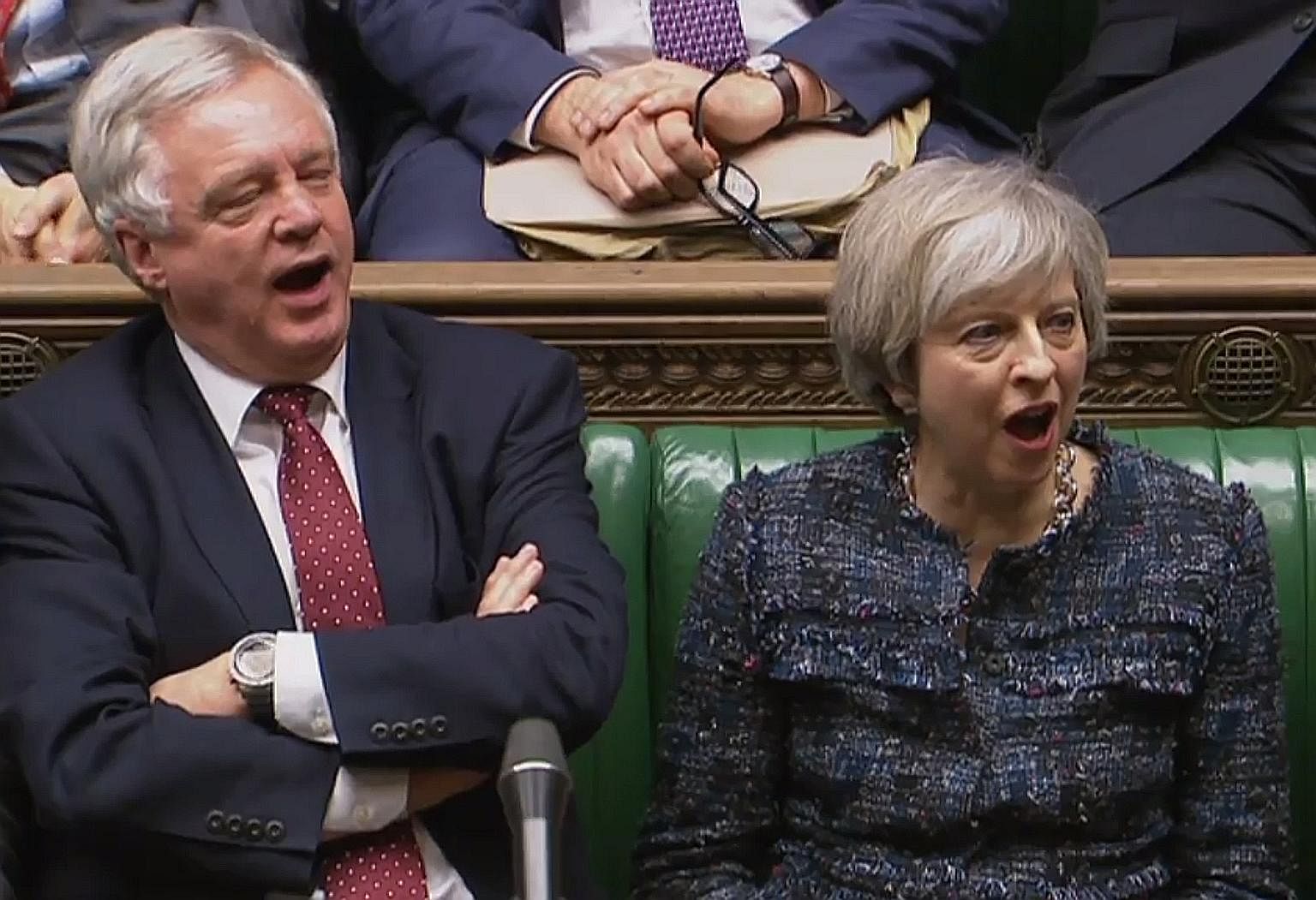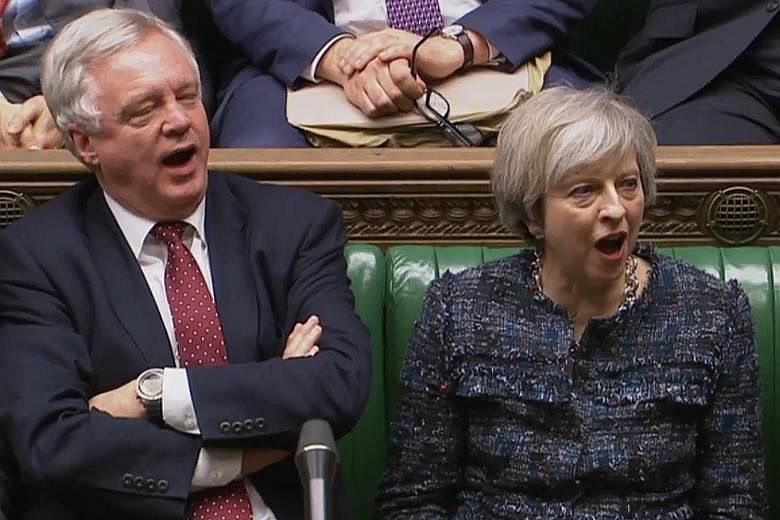British Prime Minister Theresa May has emerged considerably strengthened after Parliament ended five days of acrimonious debates by granting her the broad powers she sought to negotiate Britain's departure from the European Union.
But her respite from domestic political pressure will be brief, for she prevailed only by promising that Parliament would be granted a bigger say over approving the final separation deal with the EU.
Her mandate to negotiate with the EU still needs to be approved by the House of Lords, Britain's upper parliamentary chamber. And if that is not enough, there is also the task of preventing Britain's disintegration while she negotiates the EU departure.
Mrs May, who came to power last July after Britons narrowly voted to leave the EU, knew all along that before she faces European negotiators, her biggest hurdle would be the British Parliament. Most legislators are opposed to Brexit, as the process of separation from the EU is popularly known.
She therefore tried to to invoke ancient royal powers that grant the British premier the right to negotiate treaties with foreign countries without parliamentary approval. But in an epic legal challenge that ended up in the Supreme Court, her argument was rejected by judges who ruled that Parliament could not be ignored.
A bruising battle in the 650-member House of Commons, in which the government has only a 14-seat majority, was ultimately avoided not because Mrs May was particularly adroit at managing legislators, but because the opposition Labour party ordered its MPs to vote with the government.

The decision of Labour leader Jeremy Corbyn to support Brexit infuriated many of his supporters, as well as the Scottish National Party (SNP), which has 56 parliamentary seats. The SNP had hoped to join hands with Labour in demanding that before the British government is given powers to negotiate Brexit, Mrs May should give explicit guarantees that Britain would retain free trade with Europe and keep its borders open to EU citizens.
But the far-left Mr Corbyn, who was never enthusiastic about the EU, refused to put pressure on the government, largely because he knew that voters in key Labour constituencies in the northern parts of England backed Brexit.
His decision was denounced by SNP leader Nicola Sturgeon as "pathetic". But it was a huge boon to Mrs May, who saw her mandate to negotiate with the EU approved with a whopping majority of 494 legislators against 122.
Better still, her government brushed aside no less than 60 pages of initiatives put forward by individual MPs; the final mandate to negotiate Brexit is a text of just about 150 words long, which gives Mrs May powers to do more or less what she wants.
Still, many hurdles lie ahead. In return for gaining her mandate, Mrs May was forced to concede that Parliament in London will be given the right to vote on the final Brexit deal at the same time as the European Parliament votes on it. That means that she could be forced by the British Parliament to go back to the EU and renegotiate a better deal if the one she obtains does not satisfy legislators. Until now, the British Prime Minister's stance was that her lawmakers would be given only a take-it-or-leave-it opportunity to vote on the Brexit deal, and only after the deal is approved by the EU. So, although the British government enjoys greater leeway in starting the EU negotiations, it has less room for manoeuvre during the Brexit talks.
And the debate in the House of Lords beckons a week from now. In theory, the Lords, who are unelected, cannot oppose a measure that enjoys large parliamentary and clear public support. But many of its members are former high-ranking politicians, civil servants and judges who are masters at inventing legal amendments, and cannot be ordered to vote in a particular way by party leaders.
Mrs May has promised to trigger Article 50 of the Lisbon Treaty by the end of next month, setting in motion the Brexit negotiations with the EU. In addition to the tough talks ahead, she could soon face another: Rumours abound in London that Ms Sturgeon will soon announce proposals to hold another referendum on Scotland's independence, arguing that Scotland wishes to remain in the EU, unlike the rest of Britain which wants out.
The British government and Parliament will have to approve a Scottish referendum. But saying "no" could irritate the Scots and make the management of the country more difficult, while saying "yes" could infuriate the rest of the voters, and prove a huge distraction from the Brexit negotiations. In short, the sort of no-win choices Mrs May increasingly confronts, both at home and overseas.


